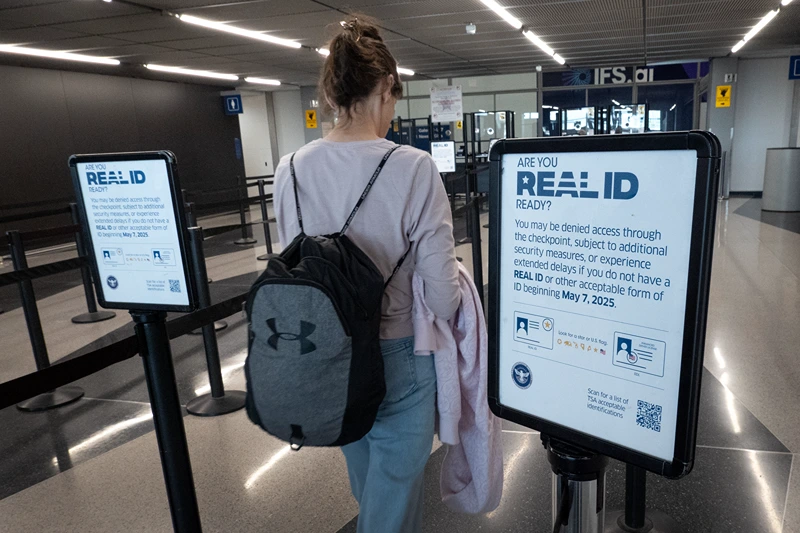
OAN Staff Blake Wolf
1:05 PM – Thursday, November 20, 2025
The Transportation Security Administration (TSA) published a notice in the Federal Register on Thursday, revealing plans to introduce an $18 non-refundable fee for passengers arriving at airport security checkpoints without an acceptable form of identification (AFOID) — such as a REAL ID-compliant driver’s license or a passport.
The $18 fee applies to the use of a new “modernized alternative identity verification program,” which employs biometric kiosks and biographic data to verify identity and potentially grant access to the sterile area of the airport for up to 10 days per payment.
The fee aims to offset the costs of this resource-intensive system, which replaces inconsistent, manual alternative screening methods currently in place at airports. However, the rule is proposed and not yet finalized — meaning the fee’s implementation date is pending public comment and announcement.
Nonetheless, this would allow passengers to cross through TSA checkpoints for up to 10 days after the purchase, after which they would have to repeat the process.
“This notice serves as a next step in the process in REAL ID compliance, which was signed into law more than 20 years ago and finally implemented by Secretary [Kristi] Noem as of May 2025. TSA is working with stakeholders and partners to ensure both security and efficiency at our checkpoints. Additional guidance will be announced in the coming days,” a TSA spokesperson told ABC News.
However, the TSA also noted that the kiosk would not necessarily “guarantee” that “an individual’s identity will be verified or that the individual will be provided access to the sterile area of the airport,” adding that travelers could potentially face additional screening or delays.
The REAL ID Act was passed into law by Congress in 2005 in response to the September 11, 2001, terror attacks in order to improve national security by setting minimum security standards for state-issued driver’s licenses and identification cards.
The law seeks to make it more difficult for terrorists to utilize fraudulent identification to evade detection when boarding commercial flights or accessing federal facilities.
In the proposal, the TSA emphasized that the “current alternative identity verification process is time and resource intensive.”
The security administration began enforcing the requirement for travelers to possess a REAL ID-compliant form of identification at airport security checkpoints in May.
Approximately 94% of Americans have since acquired a REAL ID-compliant form of identification, which is up from roughly 81% in May.
Stay informed! Receive breaking news blasts directly to your inbox for free. Subscribe here. https://www.oann.com/alerts
What do YOU think? Click here to jump to the comments!
Sponsored Content Below

